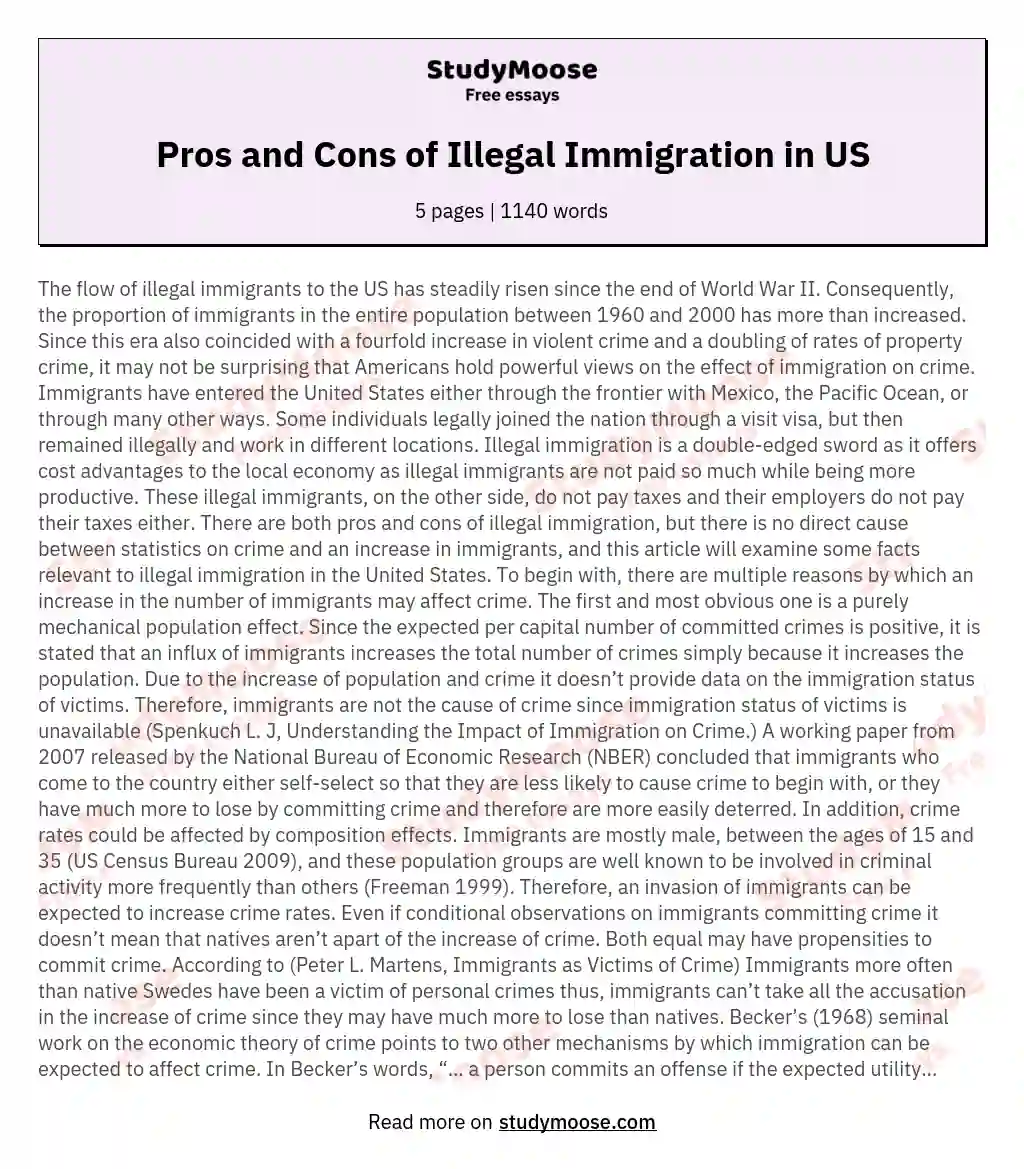Illegal immigration refers to the act of individuals moving to a country without the government's permission or violating the terms of their visa. The issue of illegal immigration has been a contentious and controversial topic for many years, with people on both sides of the issue presenting strong arguments for and against it. In this essay, we will examine the pros and cons of illegal immigration.
One of the main arguments in favor of illegal immigration is that it can provide economic benefits to the host country. Many illegal immigrants are willing to work for lower wages than citizens or legal immigrants, which can help businesses save money on labor costs. This can lead to lower prices for goods and services, which can benefit consumers. Additionally, illegal immigrants may be more willing to take on low-skilled jobs that many citizens are unwilling to do, which can help meet the demand for labor in certain industries.
Another argument in favor of illegal immigration is that it can provide social and cultural benefits to the host country. Illegal immigrants may bring different skills, experiences, and cultural traditions that can enrich the host country's society and diversity. This can lead to a more vibrant and culturally rich society, which can be beneficial to both immigrants and citizens.
However, there are also several arguments against illegal immigration. One of the main arguments is that it can put a strain on the host country's resources, including healthcare, education, and social services. Illegal immigrants may not have the same access to these resources as citizens, which can lead to an uneven distribution of resources and an increase in the burden on these systems. Additionally, illegal immigration can lead to overpopulation and overcrowding in certain areas, which can lead to problems such as housing shortages and increased competition for jobs.
Another argument against illegal immigration is that it can undermine the rule of law and the integrity of the immigration system. Illegal immigration can lead to people bypassing the legal process for immigration and obtaining citizenship, which can undermine the fairness of the system and create a sense of unfairness among those who followed the legal process. Additionally, illegal immigration can lead to issues such as identity fraud, which can have serious consequences for both immigrants and citizens.
In conclusion, the issue of illegal immigration is complex and multi-faceted, with both pros and cons to consider. While it can provide economic and social benefits, it can also put a strain on resources and undermine the rule of law. It is important for governments to carefully consider the consequences of illegal immigration and to find ways to address it in a fair and effective manner.







